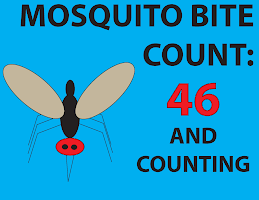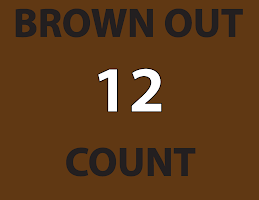I have almost finished the book “Banking for the Poor” and I am very impressed with Professor Yunus’ writing ability. Granted, he is a professor, but he is a professor of Economics, not English. In Bangledesh, where Yunus is from, academics are known as the social intellectuals and the brightest of the community. So it is, again, part of the background… but still impressive.
Anywho, I just read a part about whether or not he thinks the Grameen strategy will work in other countries, more specifically, will Grameen work in the United States? This is a question that many have approached with ignorance and an immediate, “No.” Stating that there are too many laws and regulations for one to start their own small business in the U.S. Yunus even admitted that a reason he was hesitant in starting in the U.S. was because of all of the government involvement on many fronts, including:
1. Laws and Regulations: There are so many different certificates that must be obtained before you even open your doors, that the feer, not to mention cost, of doing all of this is enough to stop someone before they even get started. I even have to admit that I am a bit apprehensive to start my own business because of the laws and regulations that one must go through before even selling a product to a client.
2. Welfare: The persons targeted are the poorest of the poor. Yunus was worried that welfare has made these poor less ambitious than someone in the same economic condition in Bangladesh. In addition, it is almost seen as a disadvantage to make money on welfare. I was unawares, but if you are on welfare and get a check for $1,000 and you make $250 in the same cycle, then you must deduct that $250 from your welfare check, leaving you in the same economic condition as before, only this time, you actually worked for the money and have nothing to show for it. Also, you are prohibited, if you are on welfare, to obtain a loan of any sort (this would make it hard for Grameen to start in the U.S. because no one would want to give up their welfare check). This one make sense if there was no micro-funding available, I agree. As we know from examples in Bangladesh, this leaves the person in a state of poverty that is very difficult to get out of. The first rule is, quite simply, the most ridiculous thing I have ever heard of. When I read this, I had my mouth open in shock the whole time in disbelief, astounding (you can close your mouth now).
These two points being said, Yunus was apprehensive to starting his strategy in the U.S. but he is always up for a challenge. While on a trip to the U.S., Yunus met with an Arkansas Governor with a dream to alleviate poverty in his home state. If my parents are reading this, you may want to go to the next blog. The Governor was soon-to-be President Clinton. Yunus and President Clinton had dinner and talked about micro-finance. Clinton stated, “I want that” and asked when they could start that in Arkansas. Yunus responded, “tomorrow.” And that was that, the next couple of days, Yunus met with some state officials and all was ready for Grameen Foundation-USA (GF-USA).
Yunus met with some poor people in Arkansas in the following days and he found that the people he had met on welfare were not unambitious, they were just given no reason to get out of their situation. Why struggle every week to make $120 when you could just get $100 without doing anything from the government? The effort was not there. Yunus thought that if you gave them a loan to start something they could grow beyond $120, they would be in business and the program would work. He met a lady that loved to sew but did not have any supplies since she had to sell them. He met a man that loves to make tacos, but rarely had the money to buy excess to sell. Yunus loaned them the money they needed and GF-USA is still in existence today. The thing that surprises me the most about Grameen is not that it improves people’s economic situation, because it does, but how much it improves their emotional situation. Hope is a wonderful thing and can turn into much more than that.
One other note that I am excited about (again, mom and dad, you may want to skip to the next blog), is the appointment of Hillary Clinton as Secretary of State. As stated above, President Clinton was one of the first politicians to promote micro-finance in the U.S. Well, Hillary is not far away and she has stayed very involved with Grameen and various micro-credit events, Including the Micro-Credit Summit (circa 1996… I will have to check). She has already stated an interest in promoting more micro-credit institutions through the United States and I hope the enthusiasm she has for it and the exposure she has given it will boost micro-credit awareness and development in the United States.






2 comments:
To quote the best of the best..."Hope is a good thing, maybe the best of things, and no good thing ever dies."
And I agree with your parents on the clintons. Might work in microlending, but you can pretty much blame Bill for the housing market collapse...ie, lending money to people who couldnt, and didn't, pay it back. I like the intentions, but in the real world, it didnt work.
Dare I ask who you voted for...just kidding, you wouldn't tell me anyway! :)
Post a Comment